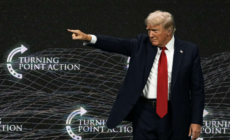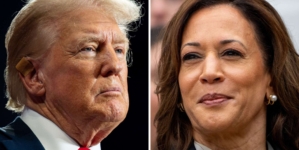-
Tuzson: Attacks on sovereignty more and more open - 10 mins ago
-
Trump Warns of Vote Rigging, Asks Christians to Vote ‘Just This Time’ - 33 mins ago
-
Pumas vs. Austin FC Leagues Cup Highlights | FOX Soccer - 33 mins ago
-
L.A. neighborhood hit by burglars for at least the third time in July - 38 mins ago
-
Dear readers, jumping and crying out in surprise - 43 mins ago
-
Kamala Harris Lands Fifth Polling Win in 24 Hours - about 1 hour ago
-
Varga: EU supports G20 financial targets - about 1 hour ago
-
O.J. Simpson property auction approved to pay off civil claims - about 1 hour ago
-
It’s all Love: Packers’ success is now in Jordan Love’s hands - about 1 hour ago
-
Szijjarto: EU’s weak interest representation ‘historic sin of Brussels bureaucrats’ - 2 hours ago
Government official: Hungary a ‘key state’
Hungary is a “key state” which takes it upon itself to represent regional interests as well, and represents values in connection with the changing world order that “differ from the usual”, the prime minister’s political director said at the presentation of a book on Hungary’s strategy for connectivity in Gyor, in the northwest, on Tuesday.
Balazs Orban, who is also chairman of the board of trustees of Mathias Corvinus Collegium (MCC), said the changing global power dynamics were also impacting the balance in world politics. He argued that the ongoing industrial revolutions were based on technologies requiring raw materials not available in Europe, making the continent vulnerable.
He said Hungary could choose to either apply an emotional approach to this change, or take it as something that is natural and try to manage the situation.
Though Hungary is “demographically not a significant country”, its level of technical development is high and its export power strong, Orban said, adding that over the last 30 years, Hungary had become capable of producing what it needs and making sure that its goods are competitive in other parts of the world as well.
He said it was impossible to predict global developments, but a policy of a formation of blocs was not a solution. The emergence of blocs, he added, was dangerous for Hungary because it blocked breakout opportunities and posed a geopolitical threat.
Orban said that the policy of blocs did not strengthen the development position of the United States, but instead accelerated change, arguing that Europe “fell to its knees” as a result of the US’ approach to the war between Russia and Ukraine, while Russia had been able to diversify its economy and strengthen its relations with China.
He said Hungary needed an approach that opposed the formation of blocs and was built on connectivity. Such an approach, he added, ended unilateral dependence, strengthened sovereignty and widened economic spectrums.
Orban said this entailed government policies that focused on transport infrastructure developments and the establishment of logistics hubs while devoting attention to increasing value added in the economic output, and a foreign policy based on national interests.
Source link






























